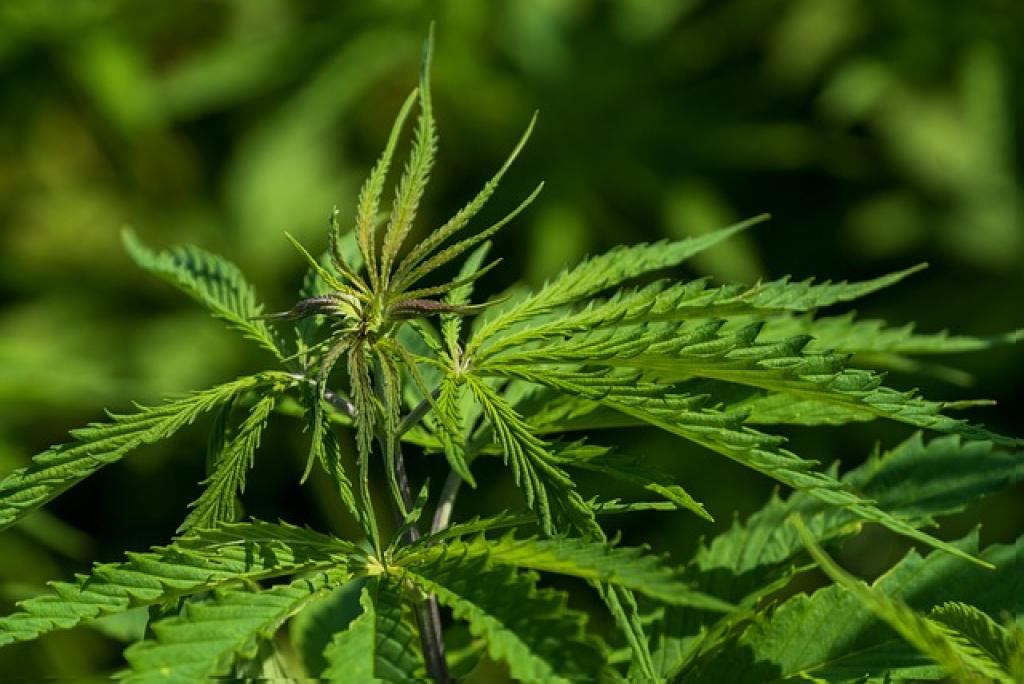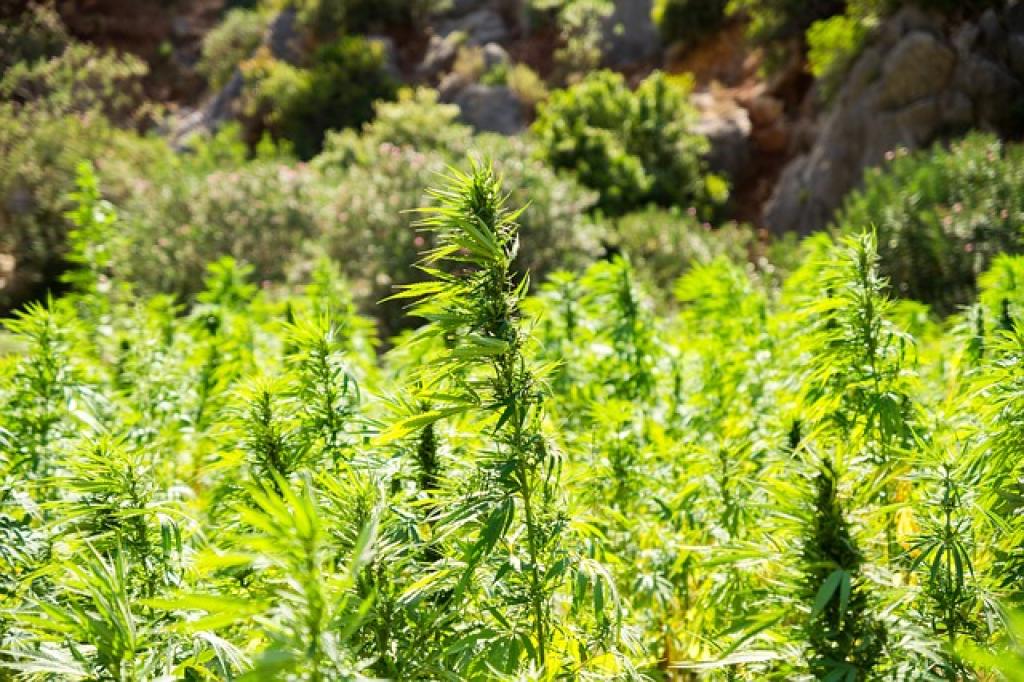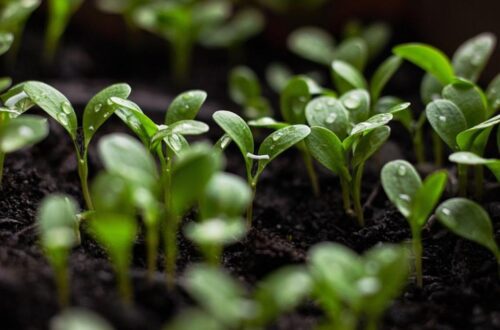In today’s world, sustainability isn’t just a buzzword—it’s a necessity. As we face increasing environmental challenges, finding eco-friendly solutions is crucial. One plant that’s been gaining attention for its potential to help is hemp.
Not only is hemp versatile and resilient, but it also requires significantly less water than other crops like cotton. This makes it an excellent option for water conservation in agriculture.
Imagine a crop that’s not only good for the environment but also valuable for numerous industries. From clothing to construction, hemp’s uses are almost endless. And its minimal water footprint makes it a game-changer for sustainable farming.
Join us as we explore how hemp farming could be a key player in water conservation efforts and why this ancient plant might just be the modern solution we need.
Hemp: A Natural Solution for Water Conservation
Hemp stands out as a superstar in the realm of sustainable agriculture. One of its most striking advantages is its low water requirement. Unlike water-intensive crops, hemp thrives with minimal irrigation. This characteristic alone makes it a vital player in addressing water scarcity issues.
On average, hemp uses about half the water that traditional crops like cotton consume. In regions where water is a limited resource, this can make a significant difference. With water resources becoming more strained, switching to crops like hemp can help farmers maintain productivity without overburdening local water supplies.
Additionally, hemp’s deep root system helps in soil retention and reduces erosion, further conserving water. These roots delve deep into the ground, tapping into moisture reserves that shallow-rooted plants can’t reach. This not only ensures the plant’s survival during dry spells but also enhances the soil’s health and water-holding capacity.
By integrating hemp into agricultural practices, farmers can contribute to a more sustainable and water-efficient ecosystem. This natural solution doesn’t just promise a reduction in water usage—it represents a forward-thinking approach to farming in a world where every drop counts.
The Environmental Impact of Hemp Cultivation on Water Resources
Considering its minimal water needs, hemp cultivation is a breath of fresh air for our water resources. Traditional agriculture can put intense pressure on water systems, depleting rivers, lakes, and aquifers. Hemp offers a refreshing alternative that can alleviate some of this stress.
By the same token, the water efficiency of hemp isn’t just good for the plants themselves—it’s great for the surrounding ecosystem too. Rivers and streams are less likely to be drained, preserving habitats for countless species that depend on these water bodies. This balancing act promotes biodiversity and fosters healthier ecosystems.
Hemp’s influence extends beyond surface water. Because it requires fewer chemical inputs than many other crops, there is less risk of water pollution from agricultural runoff. Fewer pesticides and fertilizers mean cleaner rivers and lakes, and that’s a big win for everyone, from fish to families.
Furthermore, by improving soil health and structure, hemp helps retain water in the soil. Enhanced water retention means less irrigation and more natural groundwater replenishment. This can lead to more resilient farming systems that are better equipped to handle drought conditions.
Incorporating hemp into farming strategies doesn’t just benefit water conservation on a small scale. It has the potential to create a ripple effect, positively impacting broad environmental conditions and ensuring that our precious water resources are safeguarded for future generations.
How Hemp Farming Practices Can Enhance Water Sustainability
One of the standout features of hemp is its remarkable efficiency when it comes to water use. With deep roots that access moisture from further down in the soil, hemp plants often require less frequent irrigation compared to other crops. This can translate to significant water savings, especially in dry regions where every drop counts.
Another fantastic aspect of hemp farming is the plant’s ability to improve soil health. Healthy soil holds water more effectively, reducing the need for artificial inputs. This is a win-win situation, as it supports the plant’s growth while conserving water resources simultaneously.
Natural Weed Suppression
Hemp grows dense and tall, creating a natural canopy that suppresses weeds. This means farmers can use fewer herbicides, which is beneficial for the water supply. Fewer chemicals lead to less contamination of nearby streams and groundwater sources, ensuring safer, cleaner water.
Hemp also plays well with crop rotation. By rotating hemp with other crops, farmers can improve soil structure and fertility. This method prevents soil degradation and improves water retention, further enhancing the sustainability of farming operations.
Integrated Pest Management (IPM) techniques can be effectively utilized in hemp farming. Instead of relying on water-polluting pesticides, IPM uses natural predators and biological agents to keep pest populations under control. By reducing the chemical load on fields, we help protect our water resources from harmful runoffs.
Erosion Control
Hemp’s root systems are not only great for water retention but also for preventing soil erosion. Strong roots anchor the soil, reducing the amount of sediments that get washed into water systems. This keeps our lakes and rivers clearer and more vibrant.
By incorporating these savvy farming practices, hemp has the potential to contribute significantly to water sustainability. As more farmers adopt these methods, we can look forward to healthier ecosystems and a more balanced relationship with our most vital resource.

Maximizing Water Efficiency in Hemp Production
When it comes to maximizing water efficiency in hemp production, drip irrigation is a fantastic option. Unlike traditional sprinkler systems, drip irrigation delivers water directly to the plant’s roots. This minimizes water loss due to evaporation and runoff, making every drop count.
Monitoring soil moisture levels can also be a game-changer. By using soil moisture sensors, farmers can determine the exact amount of water required at different growth stages. This technology helps avoid overwatering and ensures that crops get just the right amount of hydration.
Selecting drought-resistant hemp varieties is another smart move. These plants are bred to thrive under limited water conditions, reducing the overall need for irrigation. By choosing the right strains, farmers can further optimize water use while still achieving healthy yields.
Additionally, timing irrigation schedules to coincide with cooler parts of the day, such as early morning or late afternoon, can significantly cut down on water lost to evaporation. Making small adjustments like this can add up to substantial water savings over the growing season.
Mulching is a straightforward but effective technique that can help retain soil moisture. Applying a layer of mulch around hemp plants keeps the soil cooler and reduces evaporation. This simple step can make a big difference in how much water your plants need.
Lastly, proper field layout can also boost water efficiency. Planting hemp in rows that follow the natural contour of the land helps manage runoff and ensures water is distributed evenly. This method can maximize water absorption and minimize waste.
By integrating these strategies, hemp farmers can make significant strides in water conservation. Implementing these techniques not only supports sustainable agriculture but also promotes long-term productivity and environmental health.
Innovative Irrigation Techniques in Hemp Agriculture
One of the cutting-edge techniques making waves in hemp agriculture is sensor-based irrigation. These systems employ advanced sensors placed throughout the fields to measure soil moisture, temperature, and even plant health. The data collected is then used to automatically adjust irrigation schedules, ensuring that plants get precisely the water they need—not too much, not too little.
Another exciting development is the use of mobile irrigation systems. These systems can be moved around your fields to target different areas as needed. This flexibility allows for more precise water distribution, which is particularly beneficial for large-scale hemp farms with varying soil types and moisture levels.
Variable rate irrigation (VRI) is also gaining traction. VRI technology allows farmers to customize water application rates based on the specific needs of different zones within a field. By doing so, it ensures that each plant gets the optimal amount of water, which can lead to healthier growth and better yields.
Hydroponics, the growing of plants in a nutrient-rich water solution rather than soil, is another innovative method making its mark. This technique can drastically reduce the amount of water needed for hemp cultivation since it recycles and reuses water continuously. Plus, it’s possible to monitor and fine-tune nutrient levels with great accuracy.
The integration of renewable energy sources with irrigation systems is also an emerging trend. Solar-powered irrigation pumps are becoming more popular, offering a sustainable way to ensure that water is delivered efficiently without relying on non-renewable energy sources. It’s an eco-friendly choice that’s perfect for farmers looking to reduce their carbon footprint.
Lastly, the concept of “Internet of Things” (IoT) in irrigation shouldn’t be overlooked. IoT-enabled devices can control irrigation systems remotely via smartphones or computers, offering real-time monitoring and adjustments. This tech-forward approach can save tons of water while ensuring plants stay healthy and hydrated.
Embracing these innovative irrigation techniques can revolutionize hemp farming. By staying ahead of the curve, farmers can achieve not only water efficiency but also improved crop performance and sustainability.
Advantages of Hemp in Promoting Water Conservation
Hemp has a remarkable ability to thrive with significantly less water compared to many traditional crops. This drought-resistant quality makes hemp an excellent option for regions facing water shortages. By switching to hemp, farmers can reduce their overall water consumption while maintaining productive land use.
Another compelling advantage is hemp’s deep root system. These roots not only help the plant tap into deeper water reserves but also improve soil structure and increase its ability to retain moisture. This leads to healthier soil that requires less frequent watering.
Additionally, hemp can be grown in a variety of climates and soil conditions, making it a versatile choice for water conservation. Unlike some crops that need perfect conditions to flourish, hemp can adapt and still produce high yields with minimal water. This adaptability lessens the dependency on consistent irrigation.
Soil Enrichment
Hemp contributes to soil enrichment, which is another arrow in the quiver for water conservation. Its roots prevent soil erosion and enhance soil aeration, improving water infiltration rates. Essentially, the soil becomes a better sponge for rainwater, reducing runoff and conserving water resources more effectively.
Lastly, hemp’s fast growth cycle also means that it can be harvested multiple times a year. This rapid turnover allows for more controlled water use, as farmers can plan and adjust irrigation schedules more frequently to align with the needs of the crop during different growth stages.
The Bottom Line: Hemp’s Role in Sustainable Water Management
In conclusion, hemp offers a myriad of benefits when it comes to sustainable water management. This resilient crop uses significantly less water than traditional crops, making it an excellent choice for areas grappling with water scarcity. Its ability to thrive in diverse climates and soil conditions underscores its versatility and value in conserving precious water resources.
As well as this, hemp’s deep root system not only helps in accessing water but also enhances soil health by improving its structure and moisture retention. This translates into a reduced need for frequent irrigation, making farming practices more sustainable.
Another notable aspect is hemp’s contribution to soil enrichment. By preventing soil erosion and bettering soil aeration, hemp allows rainwater to be absorbed more efficiently. This prevents water runoff and maximizes water conservation, ensuring that every drop is put to good use.
Furthermore, the fast growth cycle of hemp allows for multiple harvests within a single year. This flexibility helps farmers manage water use more effectively, as irrigation schedules can be fine-tuned to meet the crop’s needs throughout different growth stages.
All things considered, investing in hemp farming is a strategic move towards achieving sustainable water management. Its ability to reduce water consumption, improve soil health, and adapt to various conditions makes it a standout choice for the future of agriculture. By embracing hemp, we can take significant steps towards a more sustainable and water-efficient world.






